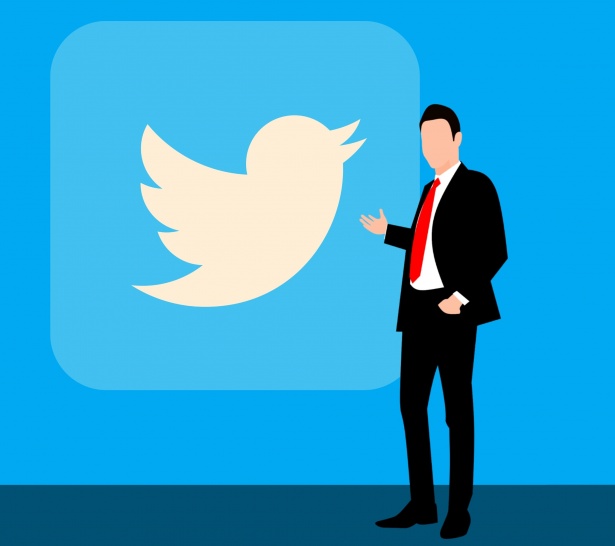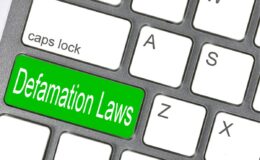When You See People Trying to Sue a Social Media Platform Because Their Account Was Suspended, It’s a Stunt (lessons of the CDA & Brittain v. Twitter)
- By : Cbh
- Category : Internet, Social Media

A number of politicians, activists, and others who feel aggrieved after their Twitter, Facebook, Instagram, and/or YouTube content has been removed or their accounts suspended have taken to the courts to sue the social media platforms with claims that they are being singled out, muzzled, or their free speech is being violated! It makes headlines. Legally speaking, however, these are losers. Anyone bringing such a suit at this point is likely showboating to claim that they are “fighting back” in some way. Be suspicious when you see that — even if you support the person or their perspective. Using a recent case, we’ll explain why these claims have and will continue to fail. And for die-hards, I’ll suggest two unlikely but still possible work-arounds. On the upside, the law which prevents these suits also allows us to use the Internet everyday.
In the earlier years of the Internet, politicians were concerned about the spread of pornography. The Communications Decency Act (CDA) was born. It took about 6-7 years, but the “indecency” portion of the CDA was struck down in 2003. This was considered the heart of the CDA but, in a twist, the CDA lived on and perhaps saved the Internet in a way that may seem antithetical to the original intent (to keep things “decent” on the Internet).
When we speak of the CDA today, it relates to section 230(c)(1) which states that “[n]o provider or user of an interactive computer service shall be treated as the publisher or speaker of any information provided by another information content provider.”
Let’s break this down. There’s two types of people on the Internet for CDA purposes: there are “services” and “providers.” Specifically, an “interactive computer service” is immune from liability if it (a) provides an interactive computer service (like social media), (b) is being treated like a publisher or speaker, and (c) it is publishing or speaking content by an “information content provider.” That latter person or entity is the person who creates the content (the actual speaker, poster, or creator). Ignore the 1990s nomenclature of “interactive” in all of these terms. Bottom line, again, there are “services” (platforms) which publish content by “providers” (users). Services/platforms are immune from liability for publishing content of its providers/users.
What’s the goal of all of this? If your Internet service provider (e.g., ATT, Xfinity, your college) or your favorite Internet site (e.g., Google, Bing, YouTube, this site, any social media site) was liable for linking to or allowing someone to post something unlawful, it would shut down the Internet.
One thing gets confusing. Services/platforms (again, immune) can exercise editorial control and still be immune. Deciding whether to keep something on or off your site is a function of being a “publisher” which is exactly what section 230 wants to protect. Yes, a service is manipulating content. But it is not creating content, which is the key. Even if a service were to block all non-conforming content so that only one perspective comes through. That may be censorship but it is not content-creation and the CDA is only concerned about creation of content. So, for example, if your local paper runs a story online about something benign, like a water pipe bursting in a neighborhood, it seems appropriate that the paper’s website could then (without liability) delete a user’s racist remark in the comment section. Alternatively, the paper could simply overlook the remark by accident or simply choose to let the comment sections be a free for all (again, either option does NOT create liability since the paper did not create the comment, a user did). So blocking, banning, removing, or conversely allowing is a function of publishing which is protected by the CDA.
Craig Brittain sued Twitter because four of his accounts were suspended. He apparently chose not to tell the court what he said or allegedly why he was suspended. He also was not represented by a lawyer. Finally, he also was running for office at the time. He brought eight counts including a claim that his First Amendment rights were violated.
SIDE NOTE: You and I only have First Amendment rights against the government. Not against companies. Ideally, someone running for government office would know that. Likely, Brittain knows that. While I do not know him or his politics, I’m going to assume that he was probably well aware that, while such claims would lose in court, it might bolster his position in the court of public opinion.
In its Order of Dismissal, the Court cited a litany of cases finding that Twitter is a service (platform) which is serving its role as a (protected) publisher. Brittain, meanwhile, is the (content) provider. Incidentally, since 2003, courts adopt “a relatively expansive definition of ‘interactive computer service’ and a relatively restrictive definition of ‘information content provider.’” More simply, a judge is going to be quick to find Twitter, Google, and Facebook to be a (protected) service. That is why these hey-you-banned-me suits fail routinely.
But you still want to sue? One, a user can sue a service/platform based upon contract rights (e.g., Terms of Service) rather than the defendants’ status as a service/platform. Two, there seems to be some possible grounds to make an anti-trust claim however that requires a heightened pleading standard and, in this case, Brittain lacked standing.
Bottom line: we want our internet service providers (ISPs) to permit us free access to the Internet without liability so we can get on the Internet and go and see what we want. We want our sites, search engines, and social media platforms to be free to publish (or not) content from other users without liability otherwise they would be shut down.
Image credit: publicdomainpictures.net


